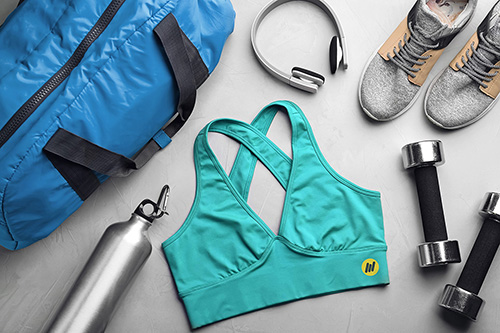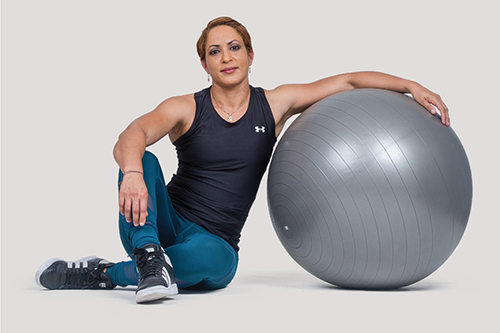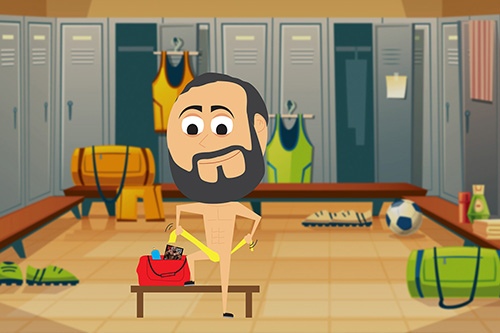
Fit Kidney Alert! Watch those risks!
“So did you hear about Barrie?” Shari muttered under her breath. At Josh’s quizzical look she continued, all knowingly, “He’s in hospital, kidneys! You know how these guys are, all the “stuff” that they use! But not you right Josh! You’re ALL NATURAL!” “Err, yep Shars, for sure!” Josh throws out, mentally picturing his shelves full of proteins, creatines, pre workouts, boosters, burners. Now he is thinking, could he be putting his kidneys at risk of damage from the basic supplements that he is using? Later that evening at home he runs through a self-check.
What were those symptoms Shari mentioned if you have any kidney damage: feeling more tired than usual, having trouble sleeping, dry or itchy skin, the feeling to urinate more often, having foamy urine or seeing blood in urine. Was he noticing any puffiness around the eyes? Ankles or feet swollen, any muscle cramping? Truth be told, occasionally, he does experience a few of these symptoms. Josh arranged to have a chat with his doctor friend and drags Shari along with him.
Doc, what causes Kidney problems?
Well Josh first you need to understand what our kidneys do so that you can appreciate what can hurt them or stop them from doing their job. The kidneys are amazing mini machines that work at balancing the composition of your blood and keep the internal environment of our bodies comfortable and consistent. Kidneys remove toxins and waste products from the body and get rid of them in the urine. On the other hand, they reabsorb nutrients like amino acids, glucose, sodium from the blood and help to transport them to where they are needed in our bodies.
Did you know that the kidneys help to maintain the electrolyte-water balance in our bodies and keep a stable pH within the human body? Now you can appreciate that anything that we do that prevents our kidneys from doing these things will lead to problems.
Can the whey proteins supplements that I take prevent my kidneys from doing their job?
It really depends on how much you use within a period for your body weight. Based on clinical studies, the average consumption of protein per day under relatively normal conditions should be around 0.8 grams of protein per kilogram of body weight, or 0.36 grams per pound. That means that the average man should eat about 50 - 60 grams of protein per day, and the average woman should eat about 40 - 50 grams.
Now, just one scoop of the typical protein powders available contains around twenty-five grams of whey protein. If you use on average a full scoop of protein powder before and after a workout, then you have a protein bar and on top of that other high protein foods e.g., dairy and meats in a regular meal, altogether you can easily consume over the recommended normal amount. If this happens occasionally this may not be a problem, but if they are doing this every day for several months, even years then it begins to put a strain on your kidneys. Your kidneys will have difficulty to process that much protein constantly to ensure that your body eliminates all the waste products of protein metabolism. This situation can indeed lead to kidney stones. Trust me, that is not an experience you want to go through.
The dangerous part to this though is that people who consume these excess amounts of supplements may not feel the effects now. Unfortunately, they may fall victim to serious health issues later in life, and not even know that it could be traced to their gym going days of high whey intake!
What about Creatine and Fat Burners?
Research over the last few years has shown that oral creatine supplementation appears to be safe when used by healthy adults at recommended loading of 20 g/day for 5 days and maintenance doses of less than 3 g/day).This can vary.
However, for fat burners it gets a bit tricky. They can contain elements like ephedra which ensure rapid weight loss, but this substance can react with some medical conditions and there have been cases of serious adverse effects and even fatalities have been reportedly linked with ephedra. One of its side effects is kidney stones and other kidney malfunctions. Some manufacturers still modify these ephedra molecules which give similar effects and side effects especially if used in combination with caffeine. I would advise everyone to consult their doctor first before using these fat burners particularly if you suffer for asthma.
What about steroids?
Athletes who use anabolic steroids and the doctors caring for them need to be aware of the potentially serious risks to the kidney. Researchers suspect that the associated rapidly increasing muscle mass puts a strain on kidneys, and the steroids themselves can be toxic to the organs. In clinical studies with body builders, what emerged is that long time users of steroids showed leakage of protein in their urine, while some individuals developed a kidney-scarring condition known as “focal segmental glomerulosclerosis”. According to the researchers, this condition develops when the kidneys are overworked.
When your kidneys are not working as well as they should, they can let some protein (albumin) escape through their filters, into your urine. If you have protein in your urine, it is called proteinuria (or albuminuria). Having protein in your urine can be a sign of nephrotic syndrome, or an early sign of kidney disease. However, the good news is that, from various reports, the kidneys of the bodybuilders who were studied improved when they stopped taking the steroids. That is reassuring news for users who want to reverse the beginnings of a problem before it becomes chronic and irreversible.
But you know Shari you may be at a higher risk of kidney problem than Josh who takes supplements in moderation.
Impact of overtraining
Surprised? Both you and your trainer engage in high intensity training. You keep challenging yourselves to go harder, grow stronger! However, there is the possibility that you can push yourself too hard and too long and put yourself at risk of kidney damage. Intense training has been shown to cause substantial reductions in the amount of blood going through the kidney. This is called the renal blood flow, which can potentially fall to 25% of the resting value when strenuous work is performed. What happens then is that your metabolic wastes will not be filtered from the blood into the renal tubes and stay circulating in your blood leading to other medical problems. You would not want to have that happen too often and for any long-time duration.
Another impact of working out too much is that it can cause low sodium levels and malnutrition, which negatively affects your kidneys, especially if you are not supplementing the calories you burned with additional calorie consumption. When your body does not have enough nutrients, it cannot perform basic functions properly and increases your risk for kidney infection and consequently increase your risk for kidney damage or failure. In more severe cases overtraining can lead to muscle breakdown and injury, a condition called “rhabdomyolysis” which can lead to kidney damage.
Of course exercise is good for your kidneys but if you are working out upwards of three hours per day daily over a long time, then you may be working out too much and could begin to see repercussions.
What about the marathons that I run, can that cause any problems?
The obvious risk for runners is dehydration. Too little water leads to your kidneys producing urine which can have an increased concentration of minerals and waste products. This can certainly contribute to certain kidney diseases, such as kidney stones. Interestingly then, since runners know that they are at risk for dehydration they may overcompensate and take in too much water. During a run or any form of exercise if you drink too much water your kidneys will have to work harder to excrete excess fluids. If the kidneys cannot keep up with the fluid intake, extra water will move into your cells, including your brain cells, which can be fatal.
Then the physical stress of a marathon itself can affect the kidneys and lead to actual structural damage. Some studies have shown that runners are at risk of acute kidney injury (AKI), a condition in which kidneys are unable to filter waste from the blood in the way that they would normally. This makes it difficult for the kidneys to effectively balance body fluids and electrolytes, including sodium, calcium, and potassium.
But Doc, where does this leave us? Too much exercise, too much water, too little water.
Well, the good news is that much of kidney damage if caught early can be reversed. If your kidneys are not severely damaged, they may begin to heal themselves with deliberate changes in diet and monitoring your water intake. If you want to follow a high-protein diet, choose your protein wisely. Good choices include soy protein, beans, nuts, fish, skinless poultry, lean beef, pork, and low-fat dairy products.
In terms of water intake this depends on factors such as gender, weight, age and certainly your existing health conditions. There are “online” calculators that can give basic ideas, to develop your personalized drinking quantities. However, it may be helpful for you and your friends to consult a trained nutritionist or a doctor to work out the optimum quantity that you need to maintain good kidneys and good health in general. If you need a general gauge though, The American Council on Exercise recommends drinking around 17 to 20 ounces of fluid, 2 to 3 hours before working out; another eight ounces, 20 to 30 minutes before starting your workout; 7 to 10 ounces, every 10 to 20 minutes while exercising and finally about eight ounces post workout.
What should we do if we suspect that the problem is more severe?
We can run preliminary medicals checks on you for your peace of mind. More than likely the situation will not be severe, and we can develop a diet plan that will involve limiting your salt and potassium intake, as those put stress on your kidneys. If necessary, there are specific medications that can be prescribed that can help to regulate how your kidneys are working to remove certain elements from your blood. Remember, damage is reversible if caught in the early stages.
You both spend a great amount of time and effort on your goals for fit bodies. Remember that that also means paying attention to managing those risks to having fit kidneys!
Thanks Doc! Look Josh, a message from Barrie! He says his diagnosis is just dehydration and minor structural damage! He will be all right! Let’s go check him out now! He might need a bit of cheering up from his friends and he is in for a scolding from me for not looking after himself properly!
Disclaimer: The information presented here is for general awareness only and does not constitute medical direction. Please consult with your general practitioner for details specific to your situation if your have any questions or concerns.
Special thanks to our article reviewer, Dr Fawwaz Mohammed.
DON'T BE SELFISH, SHARE WITH A FRIEND
Other reading recommendations

How email marketing can grow your fitness business.

10 Gym Bag Essentials: My Checklist.

5 Best and simple ways to keep your clients coming back.

How to market yourself as a Fitness Trainer or Influencer.

10 Best gifts under $100 to keep dad fit.

What to Expect at your First Bodybuilding Show.

How to prep for your first fitness photoshoot.

6 best stability ball exercises for sexy abs and core.

10 Pet Peeves at the Gym.

Improve your Cycling with these Workouts- Top 6 Exercises for Cyclist.

So, you want to be a professional bodybuilder? (Pt1).

Breast Health & Well-Being.

Sole Searching... Choosing the right sneakers.

6 Ways to Avoid Workout Injuries.

